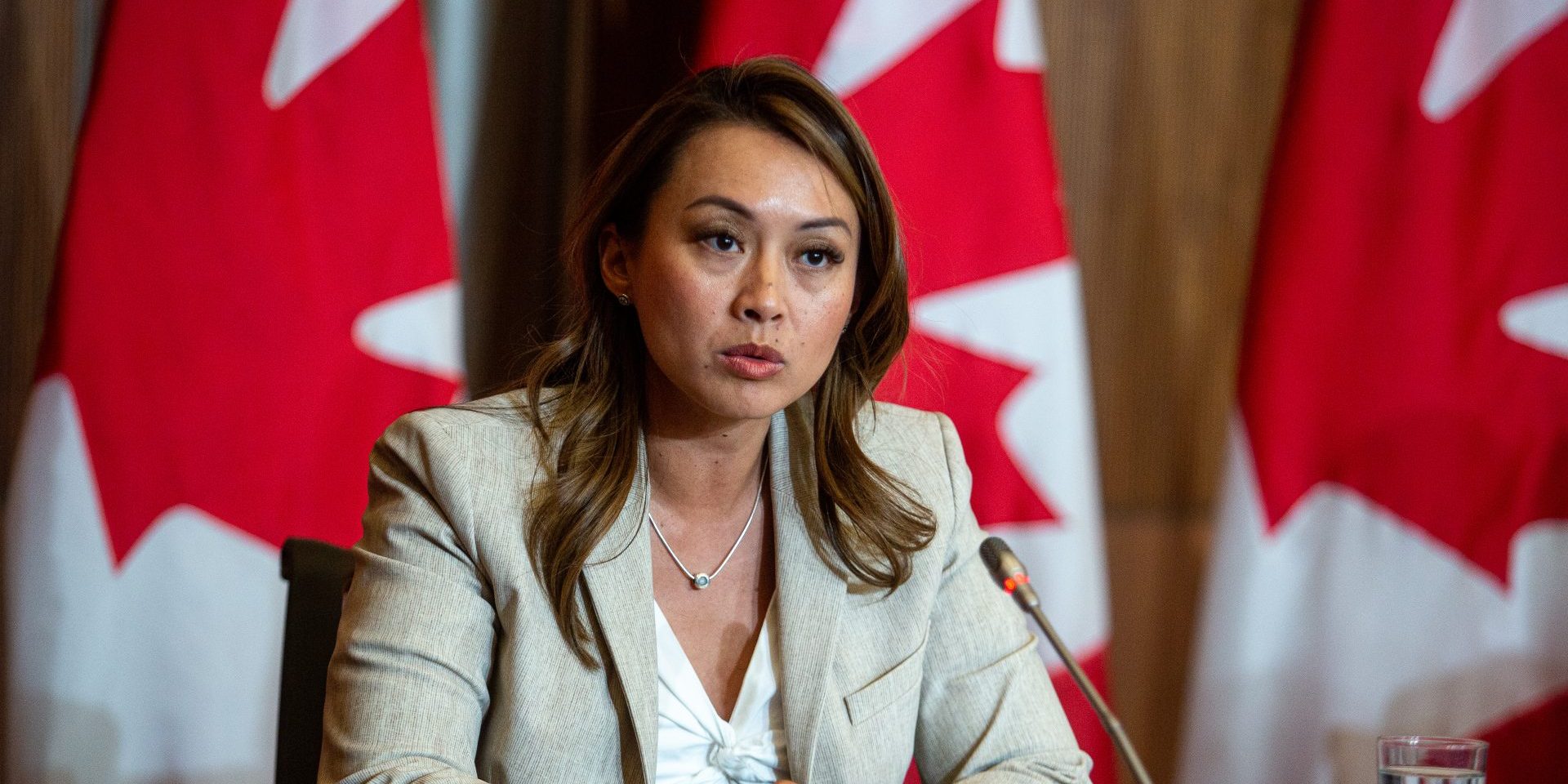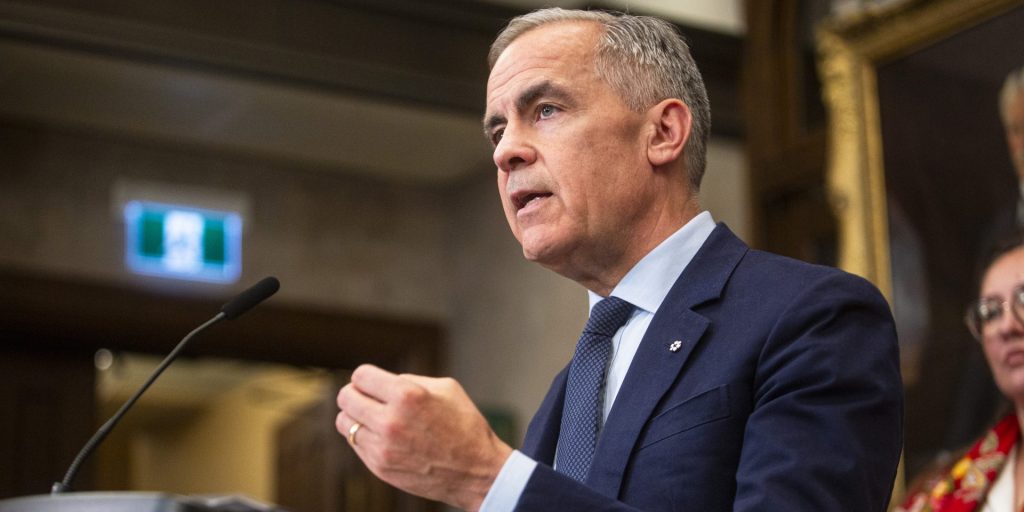Plan tackling gender-based violence needs funding renewed, say advocates amid concerns over budget cuts

As the Liberals focus on “nation-building” projects and commit to significantly increasing defence spending, women’s advocates are raising the alarm about the expiry of funds for programs that address violence against women and girls across Canada.
“Prime Minister Mark Carney talks about nation-building, but whose nation is it?” said Amanda Dale, a human rights lawyer and activist, noting industries like mining and defence have historically been correlated with high rates of gender-based violence. These are also two sectors where Prime Minister Mark Carney’s (Nepean, Ont.) government has proposed increased spending.
Dale questions whether the government will continue to devote adequate resources to Women and Gender Equality Canada (WAGE), as the departmental plan lays out massive funding cuts over the ensuing years.
Katherine Scott, who leads the Canadian Centre for Policy Alternatives’ gender equality work, said women’s groups have been trying to get clarity on government funding for about a year, but the departmental plan suggests support has been “radically reduced” and “there are no renewals that have yet been planned or booked.”

The 10-year National Action Plan to End Gender-Based Violence, adopted in November 2022, was a major policy platform for the Trudeau Liberals. The federal government entered into bilateral agreements with provinces and territories in 2023 who in turn funded a range of grassroots organizations, including women’s shelters and sexual support centres.
In Budget 2022, Ottawa set aside $539-million over five years starting in 2022-23 for the plan, which included transfer payments to local governments.
But this funding is set to expire by 2027, and women’s rights champions, along with provincial and territorial ministers, are calling on the feds to commit to its renewal.
Gender-based violence is “widely acknowledged” by the federal government, as well as provinces and municipalities, to be at “epidemic levels,” Dale said.
Statistics Canada data shows there were 28 more women homicide victims in 2024 than in 2023, with a large hike in the proportion of women killed by their spouse or partners—up from 32 per cent in 2023 to 42 per cent in 2024.
The action plan is a “critical plank” in addressing this crisis, Dale said, and is based on five pillars: support for victims and survivors, prevention, responsive justice system, Indigenous participation, and social infrastructure. She was the lead author of a report that guided the implementation of the plan in 2021.
WAGE’s departmental plan showed its planned spending will be down by a staggering 81 per cent—from $407-million in 2025-26 to $76-million in 2027-28, elevating Dale’s concerns about its future. The department also plans to cut its staff, with a planned decrease in full-time jobs from 444 in 2025-26 to 254 in three years.

The government has attributed this fall primarily to the end of limited-time funding for the implementation of the National Action Plan to End Gender-Based Violence, and two programs for the 2SLGBTQI+ community.
Anuradha Dugal, the executive director of Women’s Shelters Canada, said cuts of this proportion to WAGE will impair the ability of grassroots charities to meet the action plan’s objectives.
“It’s shocking. It’s disproportionate. It is callous. It feels as if there is no interest in the work of WAGE looking at these numbers,” she said.
Liberal platform pledged support for women’s safety
Carney’s “Canada Strong” campaign platform had several pledges to support women’s safety and well-being, including continued investments in the current plan.
But the costing platform attached to the election promises did not mention any cash allocated for the gender-based violence piece in 2027-28 and 2028-29.

The departmental plan presents a preliminary picture of WAGE’s future, with the budget to come this fall. While it is possible WAGE gets allocated more cash, its funding is likely to decrease from current levels amidst the government-wide spending review. Finance Minister François-Philippe Champagne (Saint-Maurice—Champlain, Que.) has urged departments to find savings of 15 per cent by 2028.
WAGE Minister Rechie Valdez (Mississauga—Streetsville, Ont.) maintained that she is committed to backing the National Action Plan in a recent summit with her provincial and territorial counterparts in Yellowknife, N.W.T.
Her office said in a statement to The Hill Times that any future funding decisions will be revealed through “official government channels at the appropriate time.”

It would be “hypocritical” of Canada to slash funding to WAGE or the national action plan, Dale said, given the country has often played a leading role in holding other governments accountable on the world stage.
She recalled she had just attended a UN Summit in New York in March when she found out that Carney’s first cabinet did not include a dedicated minister for women and gender equality.
“Canada had just made a large speech in big rooms saying, ‘oh, Canada’s going to be the champion for this.’ And that very afternoon, literally minutes after, we heard that he [Carney] had removed the seat at the cabinet table for anyone that would actually drive these issues,” she said.
“So that was our first warning sign,” she said. “To me that warning sign is now even more dire, and our expectation is that a national epidemic unfolding would be addressed seriously with serious investment.”
Carney tapped Valdez to the role in May, during his first post-election cabinet shuffle.
NWT minister says action plan has helped vulnerable women
Lucy Kuptana, the Northwest Territories’ minister responsible for the status of women, co-chaired a summit on gender equality with her peers in Yellowknife earlier this month where she met Valdez and strongly advocated for funding to continue for the next five years.
Kuptana said the plan had a positive impact on Indigenous women and girls in her territory. Her government was able to enhance funding for their women’s shelter network for those escaping family violence and for the Native Women’s Association of the NWT.
It supports the territories’ “community initiative funding,” she added, through which they invite proposals from communities on how they can promote the national action plan to end gender-based violence in their regions. Non-profit groups assisting foster families, homeless youth and other vulnerable populations in small communities in Canada’ north rely on these funds, she said.

The territories were earmarked to receive $16-million for the plan over five years, and could use more—not less—funding, Kuptana said, to provide services in remote areas and address generations of trauma in Indigenous communities.
“We just completed a workshop late fall of 2024 on Inuvik on terminology around gender-based violence so the elders can be engaged… We’re working with a group from Fort Providence on a residential school well-being workshop focusing on techniques of healing and wellness activities.”
The territorial government hasn’t been notified of major cuts, she added, and conversations with Valdez have been “very positive.”
Action plan isn’t without its flaws
The implementation of the action plan to End Gender-Based Violence has been far from perfect, though. Dale and Scott raised concerns over a failure to apply a co-ordinated approach between the provinces and territories, which are currently “doing their own thing” under the plan’s framework.
“Part of the issue we have is that we don’t have a common understanding of the evidence base across the different jurisdictions of Canada,” Dale said. “We have had insufficient evaluation of how our investments have performed.”
The federal government itself, Scott added, is also supposed to undertake its own work on the plan, which has been “very foggy.”
“They haven’t put money into appropriately and independently monitoring what the provinces and territories are doing, which would appear to be higgledy-piggledy, all over the place.”
Dugal echoed that view, and said women’s groups have been asking for a commissioner who can act as a central authority to keep track of all the moving parts.
“We are asking for a much stronger framework for measurement and tracking impact of those investments, because so far, we have no way of knowing what has really changed because of the funding.”
The organization’s 2025 review of gender-based violence policies, legislation, and services across Canada, noted the “differing definitions of and approaches to violence” across jurisdictions.
“This is done without reliable, generalizable data or clear oversight by and accountability to the federal government,” the report says, concluding that these practices foster a climate that is “not conducive” to achieving lasting change.
rkachhela@hilltimes.com
The Hill Times






 LICENSING
LICENSING PODCAST
PODCAST ALERTS
ALERTS













